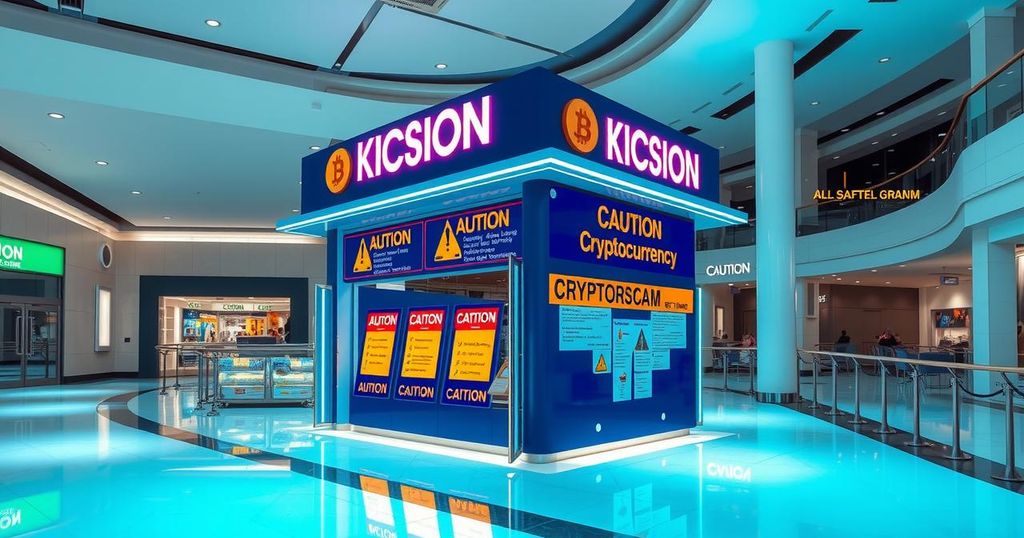Arizona Legislation Aims to Combat Cryptocurrency Scams and Improve Kiosk Regulation
Arizona’s House Bill 2387 aims to prevent cryptocurrency scams and regulate crypto kiosks. The bill addresses the financial exploitation of older adults, proposes daily withdrawal limits, and mandates warning signs at kiosks. With support from the crypto industry and minimal opposition, the bill is pending Senate approval before being sent to Governor Katie Hobbs.
Arizona lawmakers are proposing House Bill 2387 to combat cryptocurrency scams and regulate crypto kiosks. These kiosks, located in businesses and malls, enable users to convert cash into cryptocurrencies like Bitcoin. According to Brendon Blake, AARP Arizona’s director of advocacy, scams typically start with phone calls where scammers pressurise individuals into depositing cash at kiosks, leading to significant financial losses for victims, particularly among those over 60.
This demographic is targeted due to their access to substantial savings and limited knowledge of cryptocurrency operations. Experts estimate that in the previous year, around $189 million was processed through cryptocurrency ATMs as a result of scams. House Bill 2387 aims to enhance prevention, restitution, and security for victims.
The legislation includes proposals for implementing a daily limit on deposits and instituting mandatory warning signs at kiosks. Blake asserts that the crypto industry has a responsibility to implement fraud prevention measures, which are outlined in the bill. With little opposition from lawmakers and support from some industry players, Blake describes HB 2387 as a crucial first step in safeguarding residents against crypto-related fraud.
The bill is pending a Senate floor vote before returning to the House for finalisation. If successful, it will then be sent to Governor Katie Hobbs for approval. AARP remains committed to refining the legislation as necessary to ensure its effectiveness against scams.




Post Comment